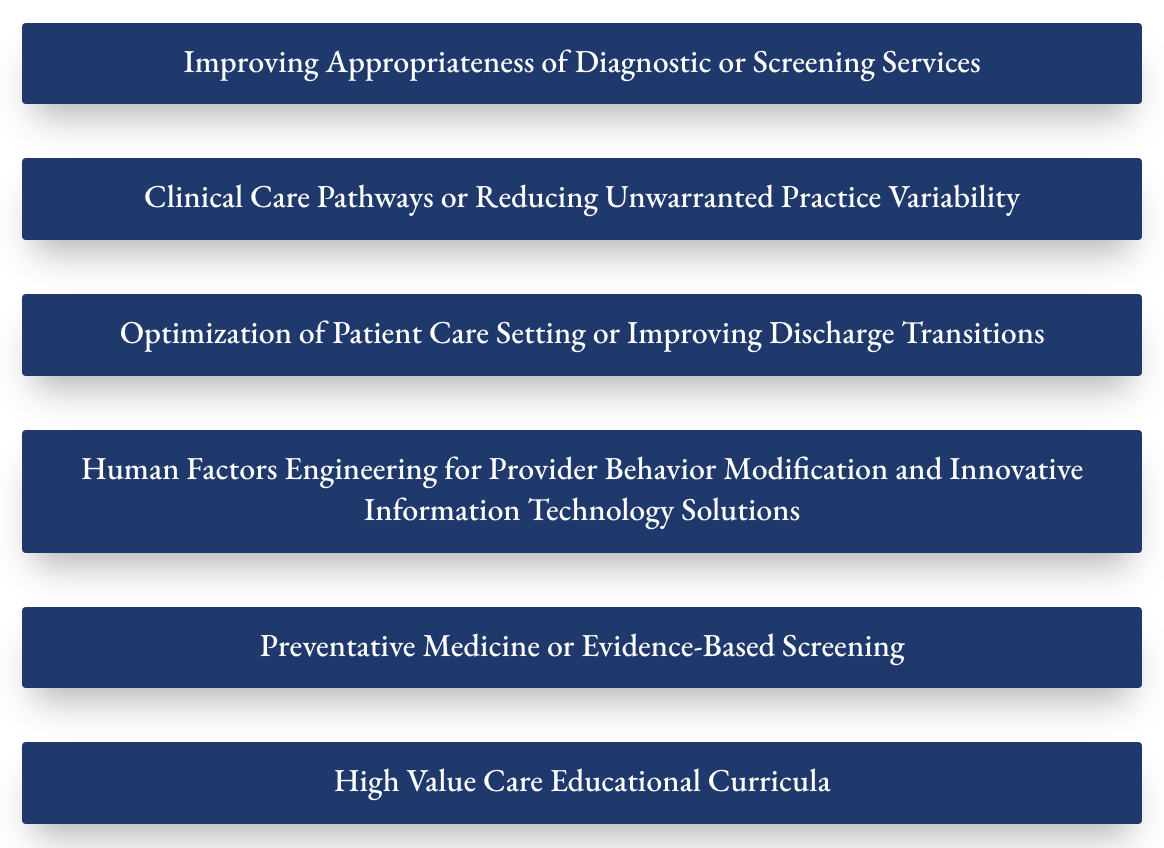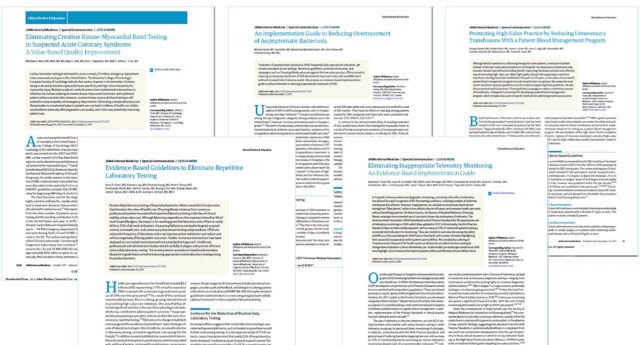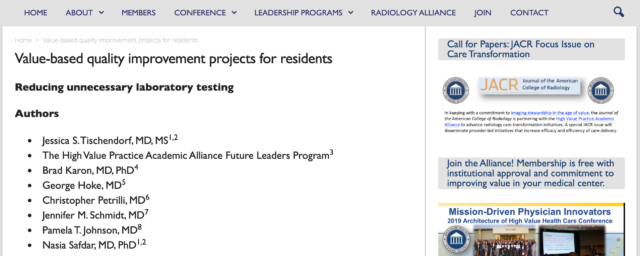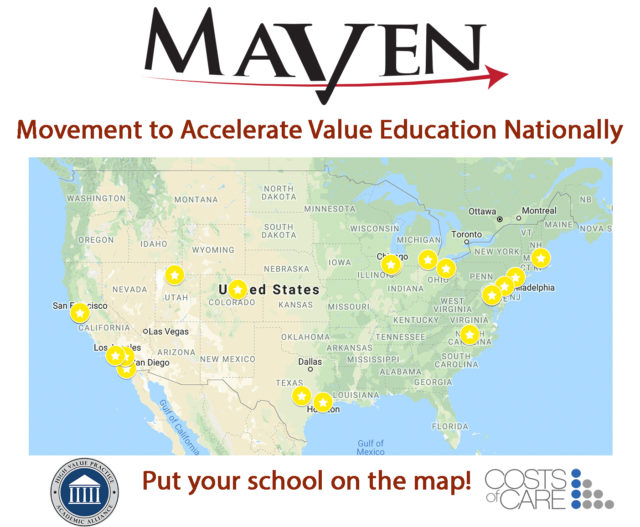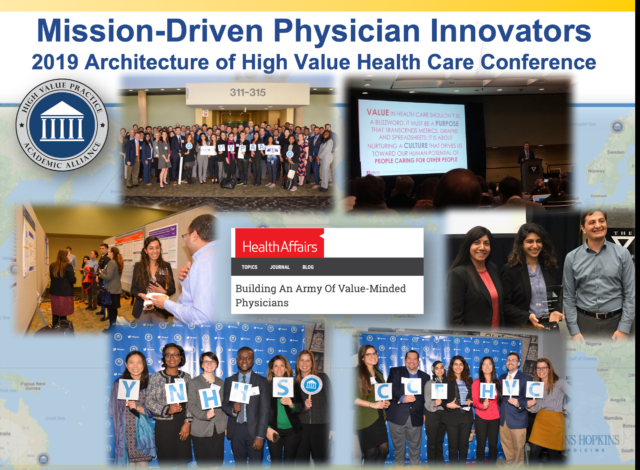From the 2023 HVPA National Conference
Alexa Lacy BS (Wake Forest School of Medicine), Palak Patel BS, BA, Isabella Waung BA, Caitlin Tedeschi MS, Kristina Henderson-Lewis MD, MPH
Background:
Improving healthcare value has become a crucial recent initiative in medicine, with increasing grassroots efforts to create a future generation of cost-conscious physicians. Medical schools across the U.S. have begun incorporating principles of value-based care into preclinical training to teach students how to understand value and apply it in their future practice.
Objective:
To formulate a successful high-value care curriculum at our institution, we surveyed medical (MD) students on their attitudes and knowledge of such topics.
Methods:
An email was sent in August and September 2022 to four classes of MD students at our institution to participate in an anonymous online survey through REDCap. Survey items measured student attitudes towards cost-conscious care and provider roles, prior experience with cost discussions during provider-patient interactions, knowledge of healthcare systems-related topics, and other student characteristics (i.e., stage of training, specialty interest, etc.).
Results:
61 participants out of 602 invited medical students (10.1%) completed the survey. The response rate was similar across the four MD classes: 12.6% of M1 students, 7.9% of M2 students, 9.8% of M3 students, and 10.1% of M4 students. Most students reported being very uncomfortable (42.6%) or somewhat uncomfortable (39.3%) discussing medical costs with patients. 72.2% of students reported never or seldom seeing providers discuss costs with their patients, and 80.3% have never or seldom seen medical costs included in their premedical/medical curricula. However, most students were interested in learning how to discuss cost concerns with patients, with 68.8% very or extremely interested, most being in years 1-3 of medical school. Most students reported average (44.3%) or very poor/below average (39.3%) knowledge of how health insurance functions, with only around half (50.8%) able to select the correct description of the Medicaid program in a multiple-choice question. However, most students (71.7%) were interested in learning more about health insurance. Interest in learning more about high-value care was greater for students interested in primary care fields.
Conclusions:
Despite limited prior exposure to high-value care topics in clinical and academic settings, most medical students are interested in learning more. Therefore, future curricula are essential and should be targeted towards increasing student comfortability with having cost conversations with patients and building knowledge on healthcare systems-related topics.
Clinical Implications:
Incorporating high-value care and cost-of-care education in medical school curricula can cultivate a more equitable and affordable health system by training medical students to present financial realities in an informational and empowering way.
